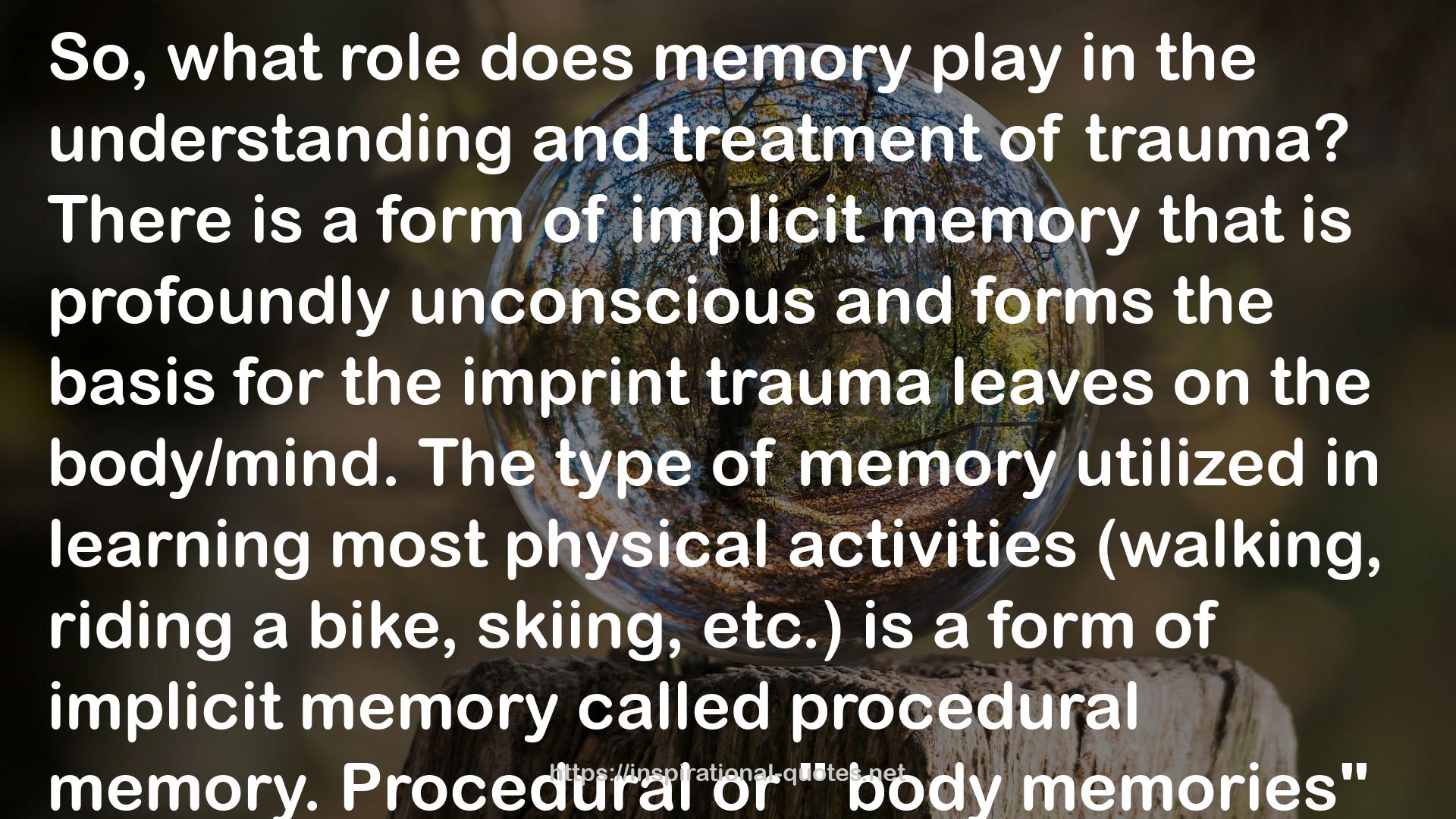" So, what role does memory play in the understanding and treatment of trauma? There is a form of implicit memory that is profoundly unconscious and forms the basis for the imprint trauma leaves on the body/mind. The type of memory utilized in learning most physical activities (walking, riding a bike, skiing, etc.) is a form of implicit memory called procedural memory. Procedural or " body memories" are learned sequences of coordinated " motor acts" chained together into meaningful actions. You may not remember explicitly how and when you learned them, but, at the appropriate moment, they are (implicitly) " recalled" and mobilized (acted out) simultaneously. These memories (action patterns) are formed and orchestrated largely by involuntary structures in the cerebellum and basal ganglia.When a person is exposed to overwhelming stress, threat or injury, they develop a procedural memory. Trauma occurs when these implicit procedures are not neutralized. The failure to restore homeostasis is at the basis for the maladaptive and debilitating symptoms of trauma. "
Image for Quotes
